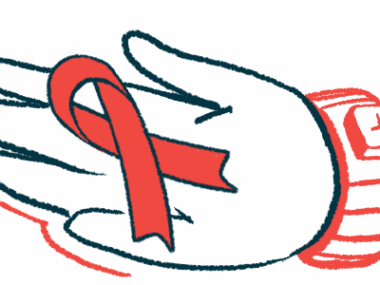Life with my husband’s ALS is hard, but I appreciate the little things
While finding joy does not compensate for loss, it's certainly something
Written by |

Last week, after having my yearly mammogram, I got a call from the clinic. The nurse told me that the imaging had revealed a spot that was concerning. I needed to go back for a 3D mammogram and an ultrasound.
After I got off the phone, my eyes filled with tears. “I don’t want to die,” I thought. “I want to see my kids grow up.”
Then I reined in my mind. Because my husband, Todd, has had ALS, a progressive and terminal illness, for 13 years, I’ve learned to be intentional about not borrowing trouble from tomorrow. Needing more imaging was a long way from a cancer diagnosis, and even in that scenario, there are treatments to try before death becomes the prognosis.
I took a deep breath and smiled through my tears, struck with the realization that I still want life.
I tend to get overwhelmed by the pain in the world. Caregiving for someone who’s paralyzed is hard. I’m always in a state of alert, ready to clear Todd’s lungs so that he doesn’t die because ALS causes breathing difficulties. In such a difficult world, I sometimes question whether existence is worth it. I was glad to feel pulled toward life.
I still find joy in living, whether it’s laughing with Todd while watching a television show, listening with delight as my teenage kids describe how their day went, or savoring the beauty of nature.
In the past couple weeks here in the Upper Peninsula of Michigan, winter can’t quite make up her mind if she’s coming. Fluffy snowflakes fall from the night sky, and in the morning, the ground is covered in white. Then warm temperatures and afternoon rain reveal grass that’s still green. I’ve been picking Fraser fir boughs to make holiday wreaths to sell. The trees are especially fragrant when they’re wet.
I’m thankful for the little joys in life, but having to compartmentalize my sadness leaves me feeling disjointed.
“I wish I could change the narrative in my mind to get rid of the pervading sadness I feel,” I told my counselor.
“Some people don’t experience the joys you talk about,” she responded. “I think you appreciate the little things more than most people do.”
That’s probably true. If I could choose, though, I’d rather have a healthy husband and less appreciation for the fragrance of Christmas trees. Learning to appreciate the little things is not compensation for all that we’ve lost, but it’s something.
Note: ALS News Today is strictly a news and information website about the disease. It does not provide medical advice, diagnosis, or treatment. This content is not intended to be a substitute for professional medical advice, diagnosis, or treatment. Always seek the advice of your physician or other qualified health provider with any questions you may have regarding a medical condition. Never disregard professional medical advice or delay in seeking it because of something you have read on this website. The opinions expressed in this column are not those of ALS News Today or its parent company, Bionews, and are intended to spark discussion about issues pertaining to ALS.







Mary E Janus
Hi Kristin, my husband also has ALS. He was diagnosed a yr ago and he’s 72 years old. I 70. It’s been a tough road but when I hear you husband has had it for 13 yrs makes me feel better in that I’m not going to loose him tomorrow. He has no use of his legs and only left arm. It’s so sad as you know. I am his caregiver. Thank you for sharing your story, god bless you and your family.